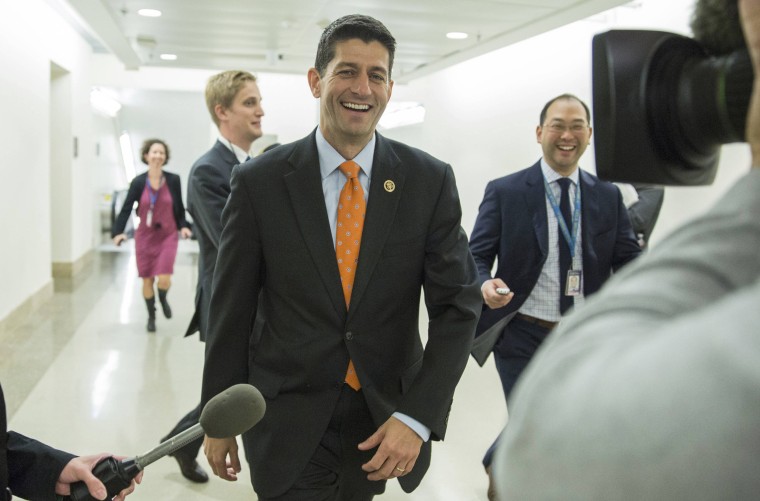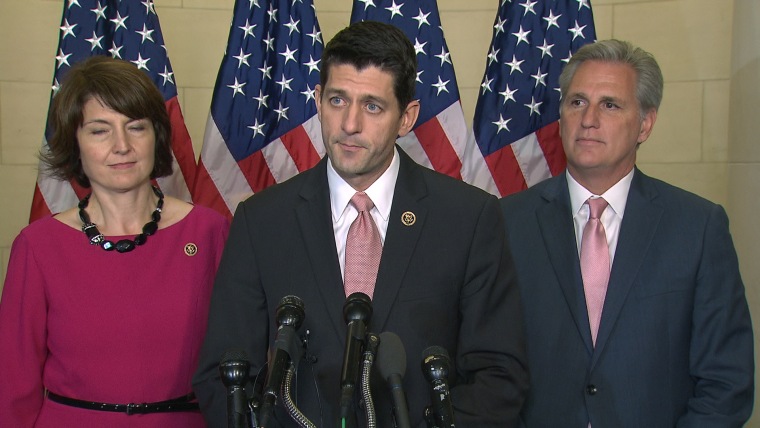As Paul Ryan assumes the office of Speaker of the United States House of Representatives he will have before him a number of challenges including unifying the Republican House members, crafting his own leadership agenda, and mandating a legislative process in the House which can get things done.
Education reform will hopefully top his list.
Congress is in fact currently considering changes to the Elementary and Secondary Education Act (ESEA), most recently known as No Child Left Behind (NCLB). NCLB is a key federal education law, which directs how we go about achieving access to quality educational opportunities for children. Given that Republicans control the House they’ll have a lot of say in how any new iteration of the Elementary and Secondary Education Act looks.
Earlier this year the Congressional Black Caucus made a statement regarding just how important updates to No Child Left Behind would be.
“Since 1965, the Elementary and Secondary Education Act has been an essential tool for promoting fair and equal access to quality public education and helping to reduce educational disparities between students of all backgrounds, ethnicities, cultures, abilities, and beliefs,” said Congressman G. K. Butterfield, CBC Chair.
“Congress should honor the 50th Anniversary of the ESEA by reauthorizing the law through new legislation that provides robust and consistent funding to schools, greater support for disadvantaged students, and recognizes the historic Federal role in education.”
Civil rights groups recognize just how important any prospective changes to Elementary and Secondary Education Act is if the nation really wants “No Child Left Behind.” Earlier this month, the NAACP Legal Defense and Educational Fund, Inc. (LDF) was among the groups on Capitol Hill to debate reauthorization of the Elementary and Secondary Education Act continues in Congress. As an organization, LDF has long fought for equitable opportunities in education, and the group is now at the forefront of working to encourage lawmakers.

“It is critical to maintain the spirit and vision of the original ESEA as this important civil rights legislation is finalized,” says Janel George, Senior Education Policy Counsel at LDF. “We must maintain a federal mechanism to hold states accountable for addressing inequities, especially those impacting sub-groups of students--including students of color, students with disabilities, English Learners, and low-income students--to ensure that we close achievement gaps and improve high school graduation rates.”
Historically Republicans have pushed back against stringent federal requirements when it comes to what’s expected of school leaders. This was most recently exemplified by the House of Representative’s passage of The Student Success Act (H.R. 5), which is the House’s proposed rewrite of ESEA. As drafted, the law was intended to lessen, “the federal footprint and restore local control, while empowering parents and education leaders to hold schools accountable for effectively teaching students.”
Speaker Ryan voted in favor of that bill and it falls in line with his stated position on education.
“Over the last 40 years, our nation’s elementary and secondary education system has seen a 300 percent increase in federal funding. However, despite record taxpayer-funded investments in public education, academic achievement has not seen a commensurate improvement, and the state of the American education system is sobering,” Ryan states on his House of Representatives web site. “Stagnant student achievement levels and exploding deficits have demonstrated that massive amounts of taxpayer funding and top-down bureaucratic interventions are not the way to provide America’s students with a high-quality education. It is imperative, then, that we allocate our financial resources effectively and efficiently to improve education in this country and ensure the continued success of future generations of Americans.”
Therein lies the conflict: civil rights groups want strong federal oversight, which demands accountability when it comes to measuring the performance and success of the nation’s public schools, while Republican lawmakers want state and local leaders holding themselves accountable, which was essentially the law of the land prior to NCLB and resulted in huge achievement gaps for Black and Latino students.
The challenge for Speaker Ryan with regards to education reform will be to find middle ground, to do what he will be tasked to do time and time again as leader, create legislation which has bipartisan support.
Both sides can agree on a need to ‘allocate our financial resources effectively and efficiently to improve education,’ and they can also agree that our nation’s education standards and student performance must improve for the sake of student success and global competitiveness.
But what won’t be agreed upon is risking the chance of a high-quality education for students most in need. Students of color and students from low-income neighborhoods face the greatest impact at the end of the day.
Speaker Ryan can cement a legacy for himself as leader if he takes on the challenge of education reform and challenges his colleague to pass a law, which works.
Chris Stewart is Director of Outreach and External Affairs Education Post, a non-partisan communications organization dedicated to building support for student-focused improvements in public education from preschool to high school graduation.
